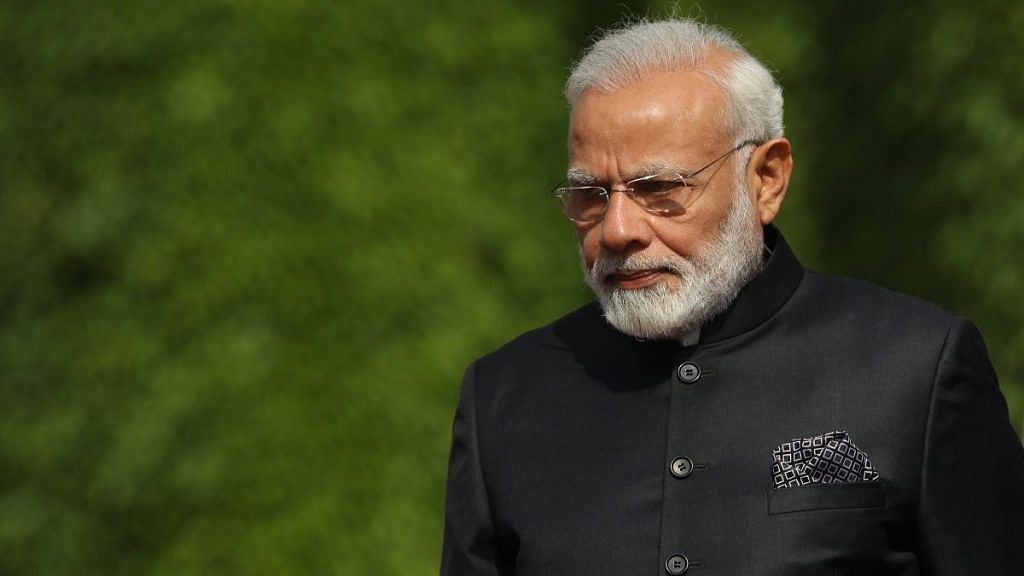India and Pakistan are facing off over Kulbhushan Jadhav at the International Court of Justice in The Hague, at the Financial Action Task Force in Paris, and will soon, via their respective friends the US and China, battle over banning Jaish-e-Mohammed chief Masood Azhar at the UN Security Council.
Back home in Battleground Kashmir, the fight for influence has ebbed and flowed since 1947. But nothing brings back memories of Masood Azhar as intimately as the decision by the Atal Bihari Vajpayee government in 1999 to release three terrorists – Masood Azhar, Omar Sheikh and Mushtaq Zargar, aka Latram – in exchange for nearly 180 passengers of the hijacked IC-814 flight in Kandahar.
On the tarmac in Kandahar, on 31 December 1999, was none other than national security adviser Ajit Doval, then an officer with the Intelligence Bureau. He, along with Vivek Katju, then joint secretary on the Pakistan desk of the ministry of external affairs, waited for then foreign minister Jaswant Singh’s plane to land and hand over those three most-wanted men to the hijackers.
Also read: As Pakistan’s leverage with US, China, Saudi Arabia grows, is it even possible to isolate it?
But Masood Azhar’s first brush with India had come long before in 1994 when he entered the country on a forged Portuguese journalist passport. He was arrested and confessed later that his job was to unite two terror groups, the Harkat-ul-Mujahideen and the Harkat-ul-Jihad-al-Islami (HUJI), under the Harkat-ul-Ansar, of which he was the secretary.
Today, Doval is once again leading the charge against Pakistan. This time, though, besides the Kulbhushan Jadhav case, he is also helping strategise India’s broad response to the Pulwama attack.
The big difference in these 20 years, between India then and now, is the rupture in Indian politics. In April 1999, the Vajpayee government lost power by one vote but when the invasion at Kargil was discovered a month later, he led from the front as caretaker prime minister in getting the Pakistanis to walk back across the LoC.
The Congress party and the rest of the Opposition supported Vajpayee during the Kargil conflict. When IC 814 was hijacked and Vajpayee decided to release the three terrorists in exchange for the passengers, the Congress party held its tongue. The political attacks came much later.
Today as well, after Pulwama, the Congress and the rest of the Opposition has come out in support of the government. But Prime Minister Narendra Modi and BJP president Amit Shah are travelling across the country, ostensibly to inaugurate development projects but promising severe retaliation against Pakistan at every pit-stop.
Also read: India has been squeezing Pakistan economically even before Pulwama
Meanwhile in the Punjab Assembly, BJP ally Akali Dal is demanding the Congress sack Navjot Singh Sidhu because he said that the blame for Pulwama cannot be laid at the door of all the Pakistani people.
As for the Pakistani people, they seem to be pretty energised by Saudi crown prince Mohammed bin Salman’s (MBS) statement that Pakistan should consider him their ambassador in the Arab world.
“We can’t say no to Pakistan,” said MBS, the enfant terrible of the Arab world, in response to Pakistan prime minister Imran Khan asking him to look after the interests of the 2.5 million Pakistanis who work in Saudi Arabia.
Oddly enough, MBS has flown back to Riyadh after the completion of his Pakistan visit Monday and will fly back to Delhi Tuesday from Riyadh – all to avoid the odour of the India-Pakistan hyphenation.
Certainly, Delhi can pat itself on the back for persuading MBS to fly up and down over half of Asia. After all, a flight from Chaklala airbase outside Rawalpindi, where MBS’ convoy of aircraft landed two days ago, to Delhi’s Palam airport takes a mere 75 minutes. Compare that with the five-odd hours it takes to fly back to Riyadh and then another five hours to Delhi.
All eyes are now on MBS’ India visit to see if and how he will surpass the rhetoric he employed in Pakistan. He is sure to ask Modi about his thoughts on Pakistan. Is India likely to cross the LoC again and carry out another surgical strike against his ‘favourite’ country? Something else, perhaps?
Of course, the Pakistani media has begun to extrapolate from MBS’ comments that India’s attempts to isolate Pakistan over Pulwama can never happen because it remains far too important for the rest of the world.
Also read: Why the Pakistani deep state sponsors terrorism in India
Pakistan may well be right. The Americans desperately need Pakistan right now for the success of the Taliban talks, which will allow them to exit Afghanistan. The Pakistani establishment has hosted the Taliban for several decades and they certainly have the clout to deliver them to the talks table.
Notice, though, that Donald Trump hasn’t once tweeted in support of Modi or India on Pulwama – since February 14 when the incident took place, there have been two tweets on China. The US President has left it to his NSA John Bolton to make the appropriate noises.
And then, there are the Russians. Only in January, the Russian energy company RAO Engineering said it wanted to invest $2 billion in Pakistan’s energy sector. This month, Russia’s Gazprom and Pakistan’s Inter-State Gas Systems have signed an MoU to conduct a feasibility study regarding gas supplies across the region.
Meanwhile China, Pakistan’s “all-weather” partner, continues to loom large.
Pulwama may well become the Narendra Modi government’s most important domestic as well as foreign policy challenge. In Kashmir, the political vacuum is growing, and people are getting increasingly restless.
As for Pakistan, PM Modi is certainly hoping he can use his personal friendships abroad as well as India’s influence to finish off his western neighbour’s use of terrorists as leverage, once and for all.
